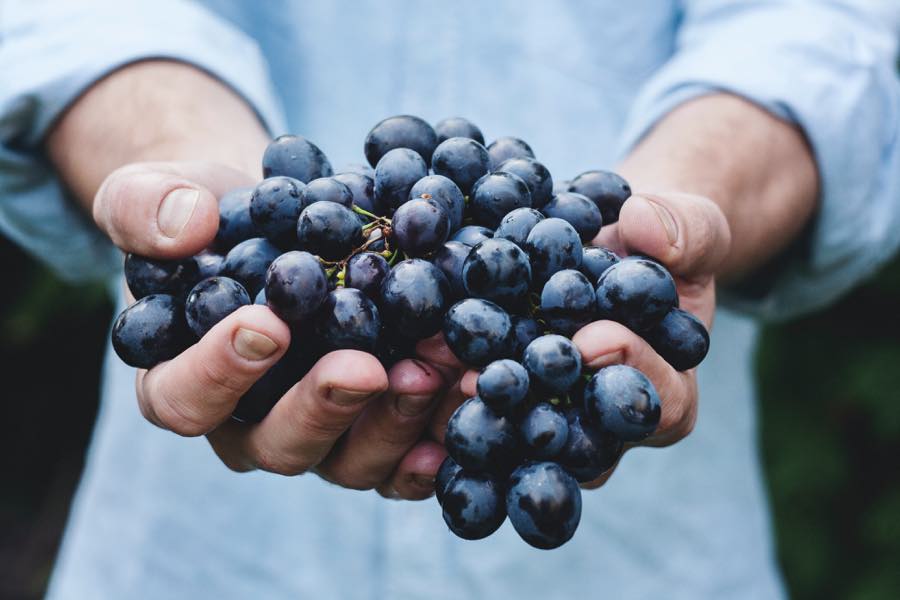Natural Wine, Biodynamic Wine, or Organic Wine? Are they all the same? What do natural, organic wines taste like? Is there a separate winemaking process for each one? These are all questions wine enthusiasts ask when delving into the wide world of wines as they start to develop their tasting palate. The process of natural wine has been around for thousands of years as it’s the traditional way of making wine. In the ’80s, many wine enthusiasts referred to natural wine as being a “fad” for hipsters only sold in hipster bars, which is why a lot of the wine labels you see mimic 80’s album covers. Some natty wine enthusiasts have described the taste of natural wine as being “alive, delicious, and totally different!”
The natural wine movement has become alive in the past 10 years, and natural wine bars are now popping up in cities that previously had no place to drink wine. A few natural wine bars worth mentioning are Vegan Wines, run by Frances Gonzalez, which is a 100% cruelty-free & vegan-friendly wine club in Santa Rosa; Rebel Rebel Natural Wine Bar in Somerville, MA, and LoLo, a quaint natural wine bar that opened this past February in Austin, Texas.
With all these natural wines hitting the shelves and natural wine bars popping up, one thing we know for sure is that all wine is made from grapes, so the base is always natural but are they all the same? Here at TriWine, we’d like to help you sort through the confusion and answer the many questions you may have about organic wine vs biodynamic wine and its many benefits.
WHAT IS NATURAL WINE?

What is considered natural wine? Put simply, natural wine is made from unadulterated fermented grape juice and nothing else. Natural wine is cultivated from grapes that haven’t been sprayed with chemicals like pesticides or herbicides, are free of additives, and grapes are handpicked instead of relying on machines to harvest them. After the grapes are picked, natural winemakers rely on native yeasts to turn the grapes into juice and then place the juice into the clay amphora pots to set off natural fermentation.
WHAT IS ORGANIC WINE?
You would think that all natural wines fit into the organic category but some natural wines are not created equal. In order for natural wines to be considered organic, there are certain categories organic wine farmers need to meet so that their wines receive organic wine certification. According to the US Department of Agricultural Certification, organic wine cannot contain any synthetic additives such as pesticides and herbicides; it has to 100 percent free of additives and farmed with 100 % organic grapes and ingredients. Some other organic wine traits include:
- GMO-Free
- Contains only wild, natural yeasts
- Organic grape growers must pass USDA yearly inspections
- Production methods include sustainable organic farming
- Sulfite-Free
- Grapes are hand-harvested
- Sugar-free
- Free of mold
- Minimal filtering/fining
- Free of chemical additives and aromas
WHAT IS BIODYNAMIC WINE?
The name biodynamic sounds weird right? Believe it or not, there is such a thing as a Biodynamic Wine Movement, which is a spiritual movement many wine farmers utilize today for agricultural sustainability. Started by philosopher Rudolph Steiner in the 1920s who believed we should live and farm together with the earth’s environment according to the lunar calendar. Today, biodynamic wine is explained as the basic idea of respecting the land and environment.
Farmers believe in the ethical approach that self-sustaining farming and garden practices do to help the ecosystem. To keep the soil fertile, biodynamic wine farmers keep ducks, horses, and sheep to live on the soil so that their waste is used as fertilizer. Creating a rich fertile environment allows the vines to grow and absorb the minerals as well as have higher nutritional content. Some forms of compost preparation include chamomile, yarrow root, and stinging nettles but the main one used is cow horn compost. Cow Horn compost is the process of stuffing manure into cow horns and then buried deep in the ground throughout the winter. When excavated, this manure is sprinkled throughout the vineyard which is said to promote growth, dissolve minerals, and regulates the soil’s pH balance. Farmers also use natural materials instead of GMOs, fungicides, herbicides, growth stimulants, and pesticides to cultivate the soil.
FUN FACT: Biodynamic wine farmers prune and harvest based on the biodynamic calendar. The calendar is broken down with daily tasks that represent the earth’s four elements and broken into four kinds of days: leaf days, root days, flower days, and fruit days. The four classical elements calendar days are as follows; leaf days for watering, root days for pruning, flower days the vineyard is left alone and fruit days are meant for harvesting.
DOES BIODYNAMIC WINE TASTE DIFFERENT THAN NATURAL, ORGANIC WINE?
Biodynamic wines do not taste any different from natural, organic wine. The only difference between the three is how they are cultivated, harvested, and farmed. Most if not all natural wines are unfiltered and unrefined, which means each bottle contains the impurities of the wine such as proteins and microbes but you can also get your hands on clean, filtered wines too.
Some characteristics or terms you may hear when one is describing natural wine are “funky, cloudy, barnyard, yeasty and gamey. They also tend to have fewer fruit aromas as non-natural wines and lean more towards the sour yeasty notes, similar to characteristics of hazy sour beer.
IS NATURAL WINE HEALTHIER?
Is natural wine better for you? Wines without additives, no or low sulfites, or any other grape manipulation are said to be healthier for you. Some natural winemakers will use small quantities of sulfites right before bottling the wine, while others won’t add any sulfites because they believe in keeping the wine in its purest form, which is a form of dry, natural wine.
Sulfites are a stabilizer and preservative used in the winemaking process to ensure the wine tastes the same as it did during bottling. Adding sulfites in wine isn’t necessarily a bad thing and wines with little added sulfites don’t disqualify it from the natural wine category. Sulfite additives in wine have been a controversial topic for many years as people equate sulfites to morning headaches, but the word is still out as there is still no evidence to support this claim.
Some other health benefits of natural wines are found to have:
- Higher amounts of resveratrol, which are antioxidants that fight free radicals
- Improve heart health
- Protect against arteriosclerosis
- Reduce the risk of diabetes and obesity
- Decrease triglycerides and cholesterol
- Protect against stroke
- Proper fermentation containers such as stainless steel, glass, neutral oak, and clay amphora pots also aid in health benefits because it keeps the wines clean and free from mold and mycotoxin
STEPS TO TAKE CARE OF NATURAL WINE
Although natural wines have many benefits, they are also very fragile and should be handled differently than conventional wines. Keep the below list in mind when shopping for your next natural wine:
- Keep your natty wine away from ALL light sources (Yes that also includes LEDs!)
- Try to purchase at your local retailer to reduce the risk of spoilage when transporting
- Keep temp below 80 degrees
- Store unfinished wines in the fridge with a cork or vacuvin
- If the wine doesn’t contain sulfites, drink it within a year
- Store the wine in your wine cellar, wine fridge or refrigerator
In the end, drinking natural wine is more a matter of trial and error to find ones that you love! Have fun and try both refined and unrefined to taste and see the differences between them. A few popular and well-known types of natural wine to get you started on your natural wine journey are:
- Pétillant Naturel (aka “Pet-Nat”) which is a light, bubbly sparkling wine that’s also very food-friendly
- Col Fondo Prosecco which is an unfiltered, funky version of Prosecco
- Orange Wine is a white wine that’s processed like red wine where the grape skins and seeds macerate with the juice during fermentation.
Which one natural wine will you try first? CHEERS!



Be the first to hear about the latest product releases, blog posts, and partnerships.
Receive Notifications on our limited Early Bird exclusive discounts!Join TriWine